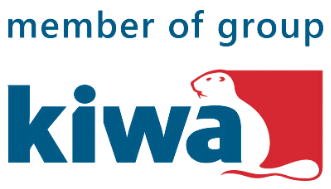ISO 9001 Financial Benefits: Quality Management System
ISO 9001 Quality Management System (QMS) is one of the world’s most widely implemented standards. So, why do so many organisations invest in a QMS and what are the financial benefits that make this a worthwhile investment? Below, we explore some of the benefits and identify how they can deliver an improved financial return for your business.
Improved process control; developing efficient, repeatable processes
It is important to recognise before we go too far that an effective QMS does not appear overnight, it is a journey and whilst it should be a very productive one, it does require resource and investment to make it work. Part of this process is the continuous learning and development of processes and procedures within your organisation. As processes are reviewed, examined and documented waste or inefficiencies are identified and removed creating more efficient, streamlined processes.
Ideally this process, through the allocation of ‘process owners’ and their partnership with operators, will result in increased ownership of the processes. This commences the process of increasing organisational accountability and awareness of the right way to do things.
To be repeatable though, the processes cannot be person dependent. Therefore, the processes need to be clearly documented and communicated through the organisation. Training and induction processes should exist to ensure all personnel with an influence on the process understand the process and are able to work consistently with the process. Controls are also established to ensure that any deviances are identified and quickly corrected.
Provides a platform for continuous assessment and improvement
As you become more adept with your QMS, you will have fewer problems with failures in service or product quality. Correctly established controls provide an opportunity to identify deficiencies early, which allows for corrective action to follow.
By having a trained workforce, properly educated in the objectives of the processes, and with the capability to critically examine the processes they work on, improvements can be identified proactively.
This leads to an organisational culture where improvements are sought and waste is challenged increasing the overall efficiency of the organisation.
A robust and efficient process reduces the cost and time spent on rectifying defects.
Improved management information for decision making
It is critical for an effective QMS to have senior management buy-in. This, however, is not a one-way process, it is a continuous 2 way process with information being delivered to management and feedback being provided to the organisation. I am not trying to imply with this scenario that management and the organisation are separable, but rather that for continued support to be given, a QMS must meet the needs of management. If these needs are not met, then continued investment will be at risk.
However, given a properly implemented and effective QMS will identify the needs of management and actively works to meet them, it has the benefit of providing management with relevant and timely information so that decisions can be made.
What are the Cost Benefits?
The end result of this ‘right first-time’ approach is to provide on-time delivery and reduce customer complaints. This process reduces the cost in your organisation as you strive to reduce waste, the amount of defects and increase your output capacity from the same inputs. The improved information floe also helps you receive the right information at the right time which enables timely decisions to be made.
What about the cost of the investment? Well a QMS should be tailored to fit the organisation; it is not a one size fits all solution. Therefore, you should design the appropriate investment to deliver the greatest benefit, if you over resource your QMS you will reduce and even eliminate the benefits by building inefficiency back into your organisation. This is not the aim of a QMS.
Creates a platform to leverage the benefit of other standards
A properly designed QMS can provide the platform to efficiently implement other standards such as ISO 14001 or ISO 31000. Following the process analysis approach and understanding the objectives of each process allows you to meet the requirements of these standards which adds further value to your business.
What are the additional benefits from Certification?
The benefits above can be attained by effectively implementing a QMS. However, there are additional benefits brought about from certification. These can include winning additional business where you couldn’t compete before as you were not certified.
You may also attract additional business, simply due to certification. I mentioned at the start of the article that ISO9001 is one of the most widely implemented standards, it is also one of the Worlds most widely recognised and can increase the quality perception of your organisation.
Certification also requires an independent audit to take place. Whilst this is not often something that organisations look to as adding value, you should not overlook the benefit of having an independent party review your processes. That is why a financial audit is a mandatory requirement for all large organisations.
All of these deliver the possibility of an increased financial return for your organisation, as you increase business revenue through the new customers and markets that have been opened up.
To see whether certification is right for your business, fill out our Quick Quote form or call us on 1800 251 0409.





